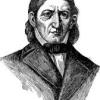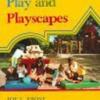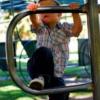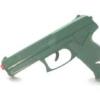Popular Categories
Health Issues
Children move through a developmental progression in the acquisition of motor skills. There are four phases of motor development: the reflexive movement phase, the rudimentary movement phase, the fundamental movement phase, and the specialized movement phase. The fundamental movement phase occurs between the ages of 2 and 7 as children gain control over their gross motor and fine motor skills.
The formal operational stage is the last of four stages proposed by Jean Piaget to describe the cognitive development of infants, children, and adolescents. The formal operational stage occurs with children from 12 years into adulthood. Emerging abstract thought and hypothetical reasoning mark this stage of cognitive development.
Emotional development refers to the ability to recognize, express, and manage feelings at different stages of life and to have empathy for the feelings of others. Emotional development is largely affected by relationships with parents, siblings, and peers.
Peer pressure occurs when an individual experiences persuasion to participate in the same activities as those in their peer group, or to adopt similar values, beliefs, and goals as the group. For a child, their peer group is usually, but not always, of the same age group.
People
Johann Heinrich Pestalozzi was a social and educational reformer and writer in Europe during the late 18th and early 19th centuries. He believed that society could best be changed by education and that reform began with assisting the individual students to help themselves.
Friedrich Froebel was truly a pioneer in early childhood education. He established a new type of school for three and four year old children in 1837, which he called a child's garden or kindergarten. Prior to this there had been no educational training for children under the age of seven.
Play
Trevor Field of South Africa saw the plight of women and young girls as they waited for windmill-driven pumps or traveled distances to get water for their families, which was often not clean water. Because young girls are tasked with getting water, they often have a disproportionate disadvantage for an education.
Joe L. Frost, EdD, had more than 50 years experience in research and teaching. Joe Frost authored books and articles on the subject of play, playgrounds, safety, children's poverty, and play and child development. One of his books, Play and Playscapes, addresses the nature and value of play and developmentally appropriate play environments for children.
Motor skills refer to the development of motor control, precision, and accuracy in the performance of both fundamental and more complex movements.
Children have fantasized about triumphing over evil for years. Fighting the "bad guys" seems to be an inherent desire, especially for boys, who use gun play as a means to feel empowered. Whether children are playing cowboys and Indians, cops and robbers, pirates, soldiers, or spies, play guns are usually involved as they engage in pretend play.
As a research professor of psychology at Boston College for 30 years, Dr. Peter Gray brought the evolutionary viewpoint to general psychology, education, human development, and children’s play.











